Living with Young Onset Dementia: An Interview with Peter Berry
Tags
Dementia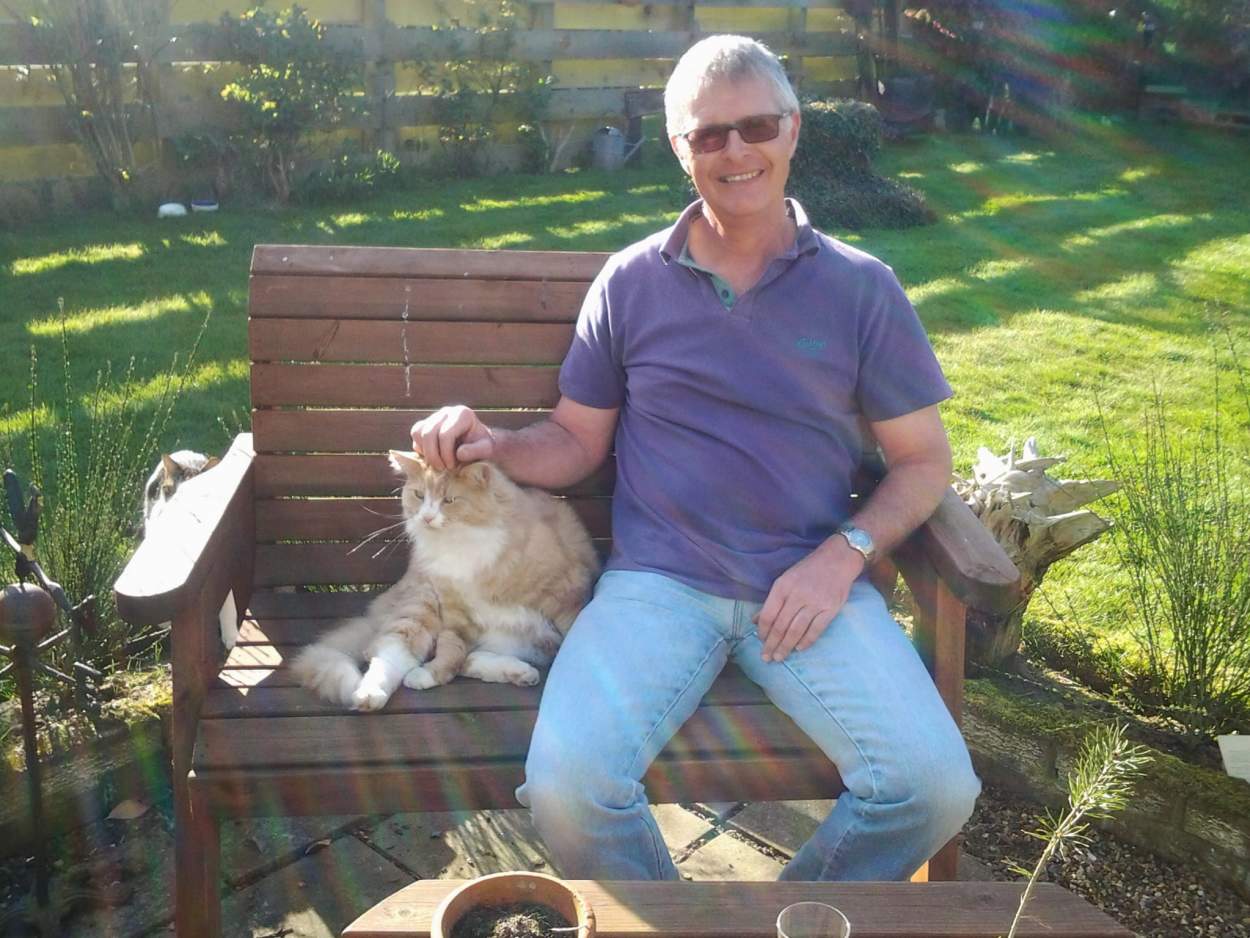
Peter Berry lives with early onset dementia, a form that appears before the age of 65. A passionate advocate for living well with dementia, Peter works with YoungDementia UK to raise awareness of the condition. We spoke to him about being diagnosed with early onset dementia, the changes it’s made to his life and how he’s determined to ‘open another door’ for every one the condition closes.
When did you first notice that your cognition had changed?
I developed dementia at the aged of 50. It had occurred to me over the years that I might possibly get it as there was dementia on my father’s side of the family and quite a few of those relatives have it, albeit they are in their 80s and 90s.
At the time I ran a saw-milling business that I took over when my father retired in his 60s. I’ve worked there every since I left school and ran it well. About three years before my diagnosis, the way I ran it changed – which is actually what my wife first noticed.
My judgements went, and running the business became a task. Reading between the lines, I think because my brain was relatively young when I developed dementia the ‘good bits’ took the strain, and I didn’t notice that much for a while.
Eventually though it got to a crucial point and those bits couldn’t cope any more. I used to be able to do measurements and drawings easily, but as time progressed I lost the ability to do maths and writing became really difficult. My son-in-law has taken over the business now and I am now employed 3-4 days a week, which is good because I am still doing what I’ve always done – even with dementia.
How did you feel when you were diagnosed with early onset dementia?
In a funny way I was relieved when I was told I had it. You stick a little label and can deal with it. You know life is going to be a little different.
I think it affected my wife more than me, to be honest. She was the one who pushed for a diagnosis – and it took two and a half years to get it. They flagged up my symptoms as depression, among other things, before they realised.
In fact, the last meeting we had was at a memory clinic before my diagnosis – and they told me I was fine! My wife wasn’t happy with that. Then we had a call from a doctor – who had compared my brain scans, when nobody else had – and could see how the problem had progressed, or regressed even.
How has life changed since diagnosis?
It’s changed a bit. We live quite rurally and I have still got a driving licence, although I don’t drive any more as it’s a bit much now. The nearest town is three miles away so we have to get in the car to go shopping.
There’s a Tesco there that I’ve been in hundreds of times, but to all intents and purposes it feels like it’s the first time I’ve ever been there every time I visit. I have to look at the signs to work out where to find the bread or fruit and veg. We got a new car a year ago and I couldn’t tell you the make, model or colour… but I know it when I see it! It’s the most bizarre thing – even I find it quite weird.
Money, too, is difficult; I know what the coins look like, but not how to put them together. I use a contactless card quite a lot now as a solution. I do get frustrated sometimes – when I think of all the things I was able to do and can’t now.
And with not being able to do some day-to-day things. Sometimes I want to boil an egg… and I can’t think how the devil to do it. I wait, and usually it comes to me though. It takes me longer to do things, there’s no doubt. My mind is working at full pelt to do what everyone else is able to do automatically.
What are the unique challenges of early onset dementia?
Because of our age we are too young to get any dementia care benefits and I still have to pay for my medication because I am under 65, which people are largely unaware of and seems very unfair.
We’ve also still got a mortgage, so I still have to work. Work does keep me active – which is good, but I don’t want to have to work as it is a bit of a strain. My job is quite physical, and I now find it very mentally challenging.
I’ve got a big garden and sometimes I just want to do that instead. But it’s not an option. I want to spend time doing things I want to do, because you don’t know how quickly they might be gone.
What I am hoping to do is to try and show people that you can live very well with this condition. It’s not the end of life, it’s just a little different, is all it is.
What are people’s perception of dementia in your experience?
Dementia in any form is often seen as something along the lines of “people sitting in their pyjamas in a care home.” In general, I think some people don’t quite understand how someone my age can have dementia.
I do tend to throw their perceptions a bit. “Yes, but you look so well!” they say. Or at the other end of the spectrum they avoid you because they don’t know what to say. You’re the same age as them often, but not on the same level and I think it scares them.
How did you get involved with YoungDementia UK?
I was on a drugs trial and it was proving quite successful so the trials people asked me if I would put my story out to raise awareness. I ended up in the local news, and YoungDementia UK saw that and got in touch with me.
I went for some time not knowing how to put my story out; I have lots to say but if I try to organise my thoughts on paper I lose track of the flow. It’s a pretty cruel disease in some ways. Luckily dementia hasn’t affected my ability to speak and I am using that to raise awareness of this condition.
Understanding young onset dementia
YoungDementia UK is a great resource for anyone affected by young onset dementia.
– Dementia is considered ‘young onset’ when it affects people under 65 years of age. It is also referred to as ‘early onset’ or ‘working age’ dementia. However, this is an arbitrary age distinction which is becoming less relevant as increasingly services are realigned to focus on the person and the impact of the condition, not the age.
– Dementias that affect younger people can be rare and difficult to recognise. People can also be very reluctant to accept there is anything wrong when they are otherwise fit and well, and they may put off visiting their doctor.
What has having dementia taught you?
When you have a condition like mine, thinking about tomorrow is pushing it a bit. You have to think, ‘let’s deal with the now’. In some ways, having this condition can make you do stuff that you’d never have thought of doing.
It’s not all bad, some of it is rather good actually. For example, I’ve started doing public speaking, which I would never have dreamt of doing before. We’re starting to take holidays again. I still do a lot of cycling – although my wife worries I will get lost (I think of it as ‘misplaced’), and I am doing a cycle ride across country for charity.
I think exercise and keeping fit and busy helps enormously. Sometimes you’ve just got to jump in. Since I was diagnosed I have been writing in a journal too – I write a couple of lines of things I’ve achieved that day, every day, so that if I get down I can look at it and realise how much I do achieve and end up feeling so much better.

What would you say to others diagnosed with early onset dementia?
For every door this condition closes to me, I will open another. Simple things can help a lot. I have colour coded keys to our house, for example. And if I want to do tasks, I try to stage things, and break it into little blocks, which works well.
I’m a great believer in finding the simplest solutions to live well, whether that’s whiteboards around the house to remind and so on. I think you have got to be very practical and very positive.
There’s probably no medical basis for it but I think the more positive you are, the longer you can can stave it off. I didn’t get depressed when I got diagnosed. I thought “let’s just get on with it.”
What I am hoping to do is to try and show people that you can live very well with this condition. It’s not the end of life, it’s just a little different, is all it is. There are people being diagnosed in my age group all the while and some are finding it hard to accept – if I can help them come to terms with it, then I will have done my bit.
This interview was part of a series brought to you by Elder.Whether you are looking for a live-in carer in London or require assistance in another part of the country, Elder will ensure that all of your care needs are taken care of.
Related Features
How to Create a Dementia-Friendly Home
Thoughtful design and adaptation can make a living environment dementia-friendly – and allow those with the condition to stay at home for longer with live-in care.
A Guide to Dementia-Friendly Days Out
How do you ensure a trip out with an elderly family member is enjoyable for everyone? We look at the challenges – and solutions for the perfect day out together
Eight Great Dementia Products That Can Make Life Easier
A diagnosis of dementia means finding new, adapted and often innovative ways to support everyday living. We list some of the challenges faced by those living with dementia – and some great products, from low-key to high-tech, that can help.
Exploring Creativity in Dementia Care: An Interview with Author John Killick
Poet and author John Killick has written seven books on dementia, including Dementia Positive, Communication and the Care of People with Dementia and Playfulness and Dementia.
Interview with Tommy Petillo, Product Designer and Dementia Circle Website Manager
We talk to product designer and Dementia Circle web manager Tommy Petillo about the value of inclusive design, sharing information and how both can empower people to live independently for longer.
Latest interviews
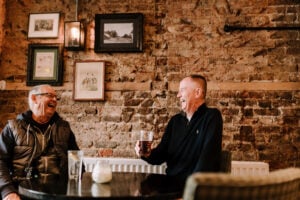
How ageist is our society? – Interview with the Centre for Ageing Better
Ahead of their Action Day on the 20th March, we spoke to the Centre for Ageing Better about their pioneering ‘Age Without Limits’ campaign which is encouraging everyone to take a stand against ageism.
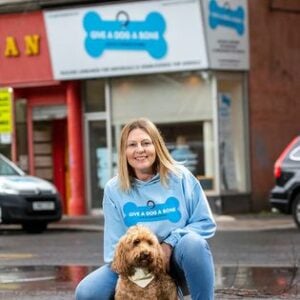
More than just a pet – Interview with Give a Dog a Bone Founder Louise Russell
Give a Dog a Bone founder Louise Russell discusses her mission to provide companionship for elderly individuals through the love and comfort of pets. Learn more about her inspiring work to improve the lives of older people.
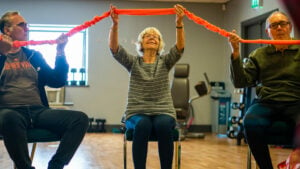
Neurodiversity and ageing – What do we know?
In this guest think piece Professor Amanda Kirby discusses how far we’ve come in understanding neurodiversity in later life, and how far we still have to go.
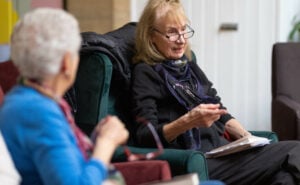
Struggling to talk about care? Elder’s latest survey finds you’re not alone.
Back to News page > Quick overview A recent survey from Elder – a leading live-in care marketplace, found just 27 percent of older people

How can caregivers overcome sleep problems?
We asked Channel 4 sleep expert Stephanie Romiszewski about the impact of poor sleep, and how caregivers can break unhealthy sleep cycles.
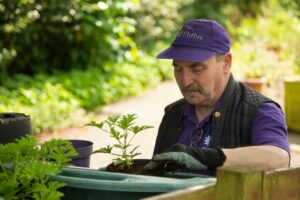
The therapeutic power of gardening: Advice from Thrive
We recently asked Thrive – a national charity that uses gardening to improve wellbeing – about the therapeutic power of gardening.